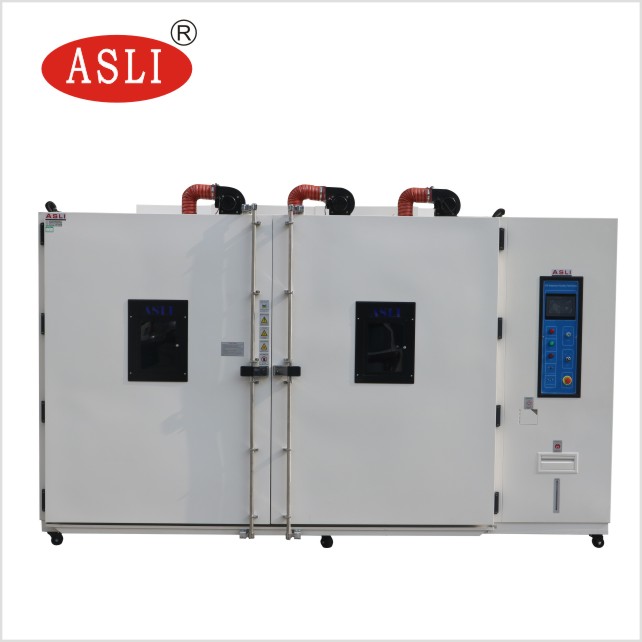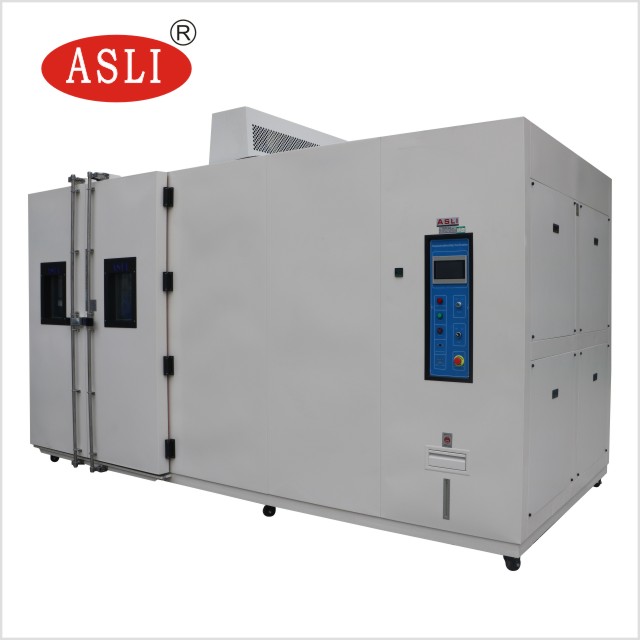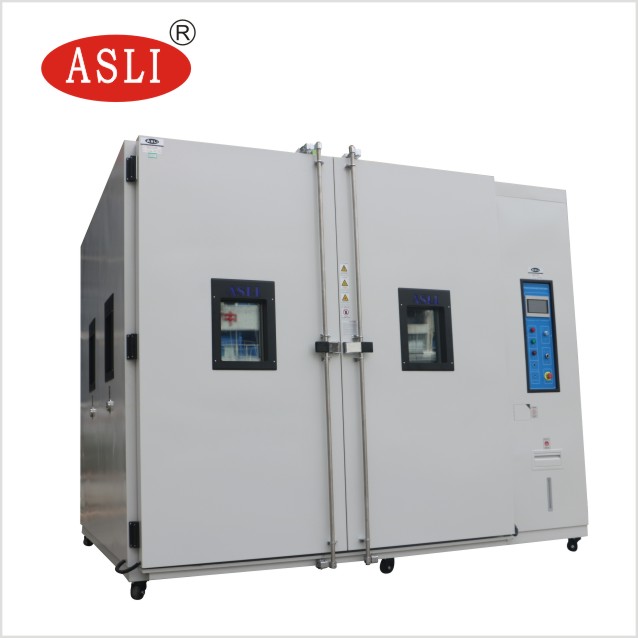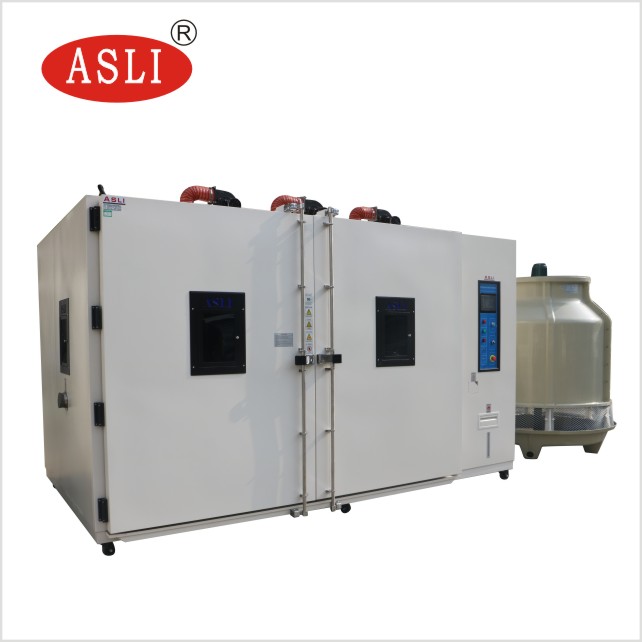Climatic walk-in chambers are pivotal for industries that require the highest standards of environmental simulation to test product robustness. From fine-tuning temperature fluctuations to replicating extreme humidity conditions, these chambers provide an array of configurations that cater to specific sector needs. Whether it's a pharmaceutical firm seeking to test drug stability or an automotive manufacturer checking component endurance under varying weather conditions, the selection of a suitable climatic chamber is crucial. Understanding the intricate balance between chamber features and application requirements not only optimizes testing outcomes but also enhances product reliability. The question remains, however, how does one navigate the complexities of choosing the ideal chamber?
A climatic walk-in chamber is a specialized type of environmental test enclosure designed to simulate a range of climatic conditions. These chambers, also referred to as environmental walk-in chambers or climatic walk-in rooms, are crucial for testing how products perform under specific environmental stresses.
Unlike smaller, benchtop units, these large chambers allow for human entry, accommodating the testing of large or bulky items.
The primary purpose of a climatic walk-in chamber is to replicate extreme environmental conditions, which range from sub-zero temperatures as low as -70°C to highs reaching +180°C, along with controlled humidity levels from 10% to 98% RH. This capability ensures that products can be tested under the precise conditions they will face during their lifecycle.
The testing conducted within these chambers is vital for assessing product durability and service life, contributing significantly to quality assurance processes.
The uniformity of conditions inside the chamber, both spatially and temporally, is a critical feature. It guarantees that all parts of the product are equally exposed to the test conditions, thus ensuring the reliability of the testing results.
This aspect is particularly valued by industries where precision and control over environmental variables are paramount.
Climatic walk-in chambers are equipped with advanced features that enhance their functionality and reliability for environmental testing. These chambers boast a high-precision cooling system that not only provides accurate temperature and humidity control but also introduces energy-saving advantages by reducing power equipment capacity requirements.
The ability to conduct long-term continuous testing makes them indispensable in scenarios where extended data collection is crucial. The design often includes a low-floor structure to facilitate the easy handling of heavy items, an essential feature for testing large or cumbersome samples.
Flexibility is another cornerstone, with chambers typically constructed from modular panels. This adaptability ensures they can be customized to fit specific laboratory spaces or meet particular test requirements. Furthermore, the substantial internal volume of walk-in chambers allows for the construction of test benches directly within the testing environment, enhancing operational efficiency.
Control over environmental parameters is precise, facilitated by an external control panel that simplifies adjustments without disrupting the chamber's interior conditions. Optional features like CO2 control and illumination are also available, providing a comprehensive solution for various research and industrial applications.
This configurability ensures that climatic walk-in chambers remain a versatile tool in environmental testing.
Understanding the operational mechanics of climatic walk-in chambers begins with their sophisticated refrigeration cycle, which is crucial for precise temperature and humidity control. This cycle is based on the reverse Carnot cycle, involving four key processes: compression, condensation, expansion, and evaporation.
The cycle starts when a specialized compressor compresses the refrigerant, increasing its pressure and temperature. The heated refrigerant then releases its heat to the surroundings in the condenser, cooling and liquefying in the process.
Post-condensation, the refrigerant travels through an expansion valve where it undergoes an adiabatic expansion, dropping in both temperature and pressure. This cold refrigerant then absorbs heat from the chamber's environment in the evaporator, effectively lowering the chamber's temperature. This cyclic process is meticulously controlled for stable conditions within the chamber.
These elements integrate to maintain precise climatic conditions, tailored to specific testing needs.

Given their versatile design, climatic walk-in chambers are essential in various industries for testing and ensuring product reliability under different environmental conditions.
In the pharmaceutical and life sciences sectors, these chambers facilitate ICH stability testing for drugs and vaccines, alongside microbiology studies, ensuring that products are safe and effective under prescribed storage conditions.
The food and beverage industry utilizes these chambers for accelerated shelf-life testing and quality control, adjusting humidity and temperature to mimic various climatic conditions.
In automotive and aerospace, climatic walk-in chambers test component durability in extreme climates and validate thermal shock and humidity resistance, critical for ensuring safety and performance in harsh environments.
The electronics and consumer goods sectors rely on these chambers for long-term aging tests and performance validation under severe conditions, helping to guarantee consumer product reliability and compliance with international standards.
Medical and cosmetics fields use these chambers for stability testing of medical devices and cosmetic product shelf-life analysis, respectively.




While climatic walk-in chambers serve various critical functions across industries, they are available in several distinct types, each tailored to meet specific needs and applications. Understanding the variety of chambers can help you select the most appropriate type for your specific requirements.
Each type of climatic walk-in chamber offers unique advantages, depending on the operational demands and the nature of the tests being conducted.
Selecting the right type ensures efficient, reliable, and controlled environmental testing.
How do you determine the most suitable climatic walk-in chamber for your specific needs?
Start by assessing the Size & Capacity that fits your project. Whether you require a standard 12m³, 18m³, 24m³, or a custom-sized chamber, consider your shelving and storage needs to ensure ample space for your experiments.
Next, evaluate the Temperature & Humidity Range necessary for your testing. Standard chambers offer ranges from -40°C to +180°C and 10% to 95% RH. For more rigorous requirements, consider chambers with extended ranges down to -70°C, which use cascade cooling systems.
Energy efficiency is crucial; choose between Air-cooled and Water-cooled options based on your facility's resources. Opting for low-power consumption models can significantly reduce operational costs.
Ensure the chamber meets Compliance & Standards critical for your industry, such as ICH, GMP, and ISO 17025. Check that the chambers provide the required uniformity and stability tolerances (±0.5°C, ±3% RH).
Finally, consider Customization & Additional Features like data logging, remote monitoring, reinforced floors for heavy loads, and advanced humidity control and purification systems.
These enhancements provide greater control and adaptability, essential for specialized applications.
Typical maintenance for climatic walk-in chambers includes regular calibration, cleaning air filters, checking refrigerant levels, and inspecting door seals and heating/cooling systems to ensure optimal performance and reliability.
Navigating the financial landscape, many suppliers offer leasing options for climatic walk-in chambers, providing flexibility and control over budget constraints. These arrangements typically include maintenance, ensuring operational efficiency without upfront capital investment.
Modern climatic walk-in chambers are highly energy-efficient, incorporating advanced insulation materials, efficient cooling systems, and smart control technologies to minimize energy consumption and reduce operational costs while maintaining precise environmental conditions.
Safety protocols for using climatic walk-in chambers include regular maintenance checks, adherence to manufacturer guidelines, proper training for operators, emergency procedures, and ensuring appropriate personal protective equipment is worn at all times.
In conclusion, despite their robust facade and intricate technology, climatic walk-in chambers humbly submit to the whims of the very conditions they replicate. These chambers, pivotal in forging products resilient to environmental whimsies, paradoxically rely on the precise control of such variables. Thus, selecting the appropriate chamber becomes not just a matter of specification, but an ironic twist in mastering the elements that these units are designed to manipulate.
Founded in 1988, ASLI (China) Test Equipment Co., Ltd. produces high-quality inspection instruments and testing equipment, including temperature and humidity chambers, aging testers, and vibration testers. Certified to international standards, ASLI serves research, quality inspection, and educational sectors worldwide, renowned for precision, reliability, and exceptional customer service.
Contact us for a free quote of your ideal climatic walk-in chamber!


[…] artificial weather chamber replicates a variety of weather conditions, such as rain, snow, UV exposure, and extreme heat. This […]